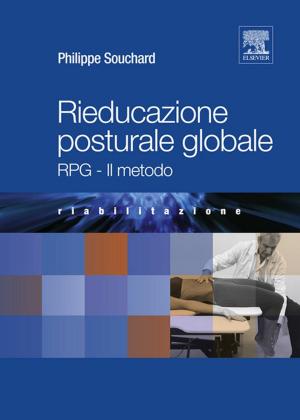Get It Up!
Revealing the Simple Surprising Lifestyle That Causes Migraines, Alzheimer's, Glaucoma, Sleep Apnea, Stroke, Impotence, & More
Nonfiction, Health & Well Being, Health| Author: | Sydney Ross Singer, Soma Grismaijer | ISBN: | 9781930858084 |
| Publisher: | ISCD Press | Publication: | October 1, 2000 |
| Imprint: | Language: | English |
| Author: | Sydney Ross Singer, Soma Grismaijer |
| ISBN: | 9781930858084 |
| Publisher: | ISCD Press |
| Publication: | October 1, 2000 |
| Imprint: | |
| Language: | English |
Every one of us has a mysterious double life. For about two thirds of the time we are conscious beings, thinking about the world within and without, and negotiating our ways through the obstacles of life. For the other one third of the time we are nearly lifeless lumps of flesh, unconscious to everything but our own fantasies, as we lie flat in bed asleep. We all know that sleep is important for health. But for an activity that consumes about 8 hours of everyday of life, surprisingly little is thought about the act of sleeping, or the way our culture teaches us to sleep. Sleep behavior, like all human activities, is defined by our culture. Sometimes, the practices taught by our culture can impact on the way our bodies function. As medical anthropologists, we research ways our cultural practices may be affecting our health. And we have found that the way we have been trained to sleep may be one of the most important causes of various diseases plaguing our society. Of course, when you consider the culture of sleeping, it includes such isues as the length of time to sleep, and time of day for sleep. Do you take frequent naps or do you sleep 8 hours straight? Do you sleep at night or during the day? Other issues concern sleepwear. Do you sleep nude, or with pajamas or lingerie? Do you sleep in your underwear? Should the sheets be natural fabrics, such as cotton or silk, or is polyester okay? What about the detergent and fabric softeners used in the sheets, pillow case, and pj's? Should you eat before you sleep? What is the impact of watching television before sleep? Should you take sleeping pills to help you sleep? These are some of the culturally defined issues that help determine how we sleep, all of which may have some potential impact on health. However, there is one cultural issue that tops the list of importance, and which may greatly determine your health status. It has to do with your sleep position. Are you sleeping on a firm, flat bed, face down, with your nose and eye compressed against the bed and pillow? Or are you on your back with your head slightly elevated, as is the case for many native cultures that use hammocks or other non-flat surfaces for sleep? The reason we ask this last question is because the circulation to the head and brain is completely related to your body position when sleeping. You cannot fully understand brain circulation without considering gravity. The effect of gravity on brain circulation is purely mechanical, and relates to the position of the head relative to the pumping heart. When we are standing up, the head is above the heart, so blood must pump against the force of gravity -- from the heart to the brain -- lowering the effective pressure with which the arterial blood is delivered to the brain. Meanwhile, drainage of blood from the brain to the heart is facilitated by the pull of gravity. The implications of this effect of gravity on brain circulation are astounding. So many diseases are related to increased brain pressure of "unknown" cause. Sleep position was never studied as the cause of this increased pressure. The implications go far beyond the prevention and treatment of migraines. Any condition that is related to brain pressure, and that is usually worse in the morning after a night of horizontal time, can be potentially related to this gravity and sleep position issue. This book will explain how your health problems may be caused by the way you are sleeping, and will show you how to change the way you sleep to prevent and cure many common health problems. After you see the evidence, you will probably be as amazed as we are that sleep research has been ignoring this critical aspect of sleep. Sleeping too flat each day may be the greatest lifestyle mistake people are making in our culture. Some of the worst diseases of our time may be all in our bed.
Every one of us has a mysterious double life. For about two thirds of the time we are conscious beings, thinking about the world within and without, and negotiating our ways through the obstacles of life. For the other one third of the time we are nearly lifeless lumps of flesh, unconscious to everything but our own fantasies, as we lie flat in bed asleep. We all know that sleep is important for health. But for an activity that consumes about 8 hours of everyday of life, surprisingly little is thought about the act of sleeping, or the way our culture teaches us to sleep. Sleep behavior, like all human activities, is defined by our culture. Sometimes, the practices taught by our culture can impact on the way our bodies function. As medical anthropologists, we research ways our cultural practices may be affecting our health. And we have found that the way we have been trained to sleep may be one of the most important causes of various diseases plaguing our society. Of course, when you consider the culture of sleeping, it includes such isues as the length of time to sleep, and time of day for sleep. Do you take frequent naps or do you sleep 8 hours straight? Do you sleep at night or during the day? Other issues concern sleepwear. Do you sleep nude, or with pajamas or lingerie? Do you sleep in your underwear? Should the sheets be natural fabrics, such as cotton or silk, or is polyester okay? What about the detergent and fabric softeners used in the sheets, pillow case, and pj's? Should you eat before you sleep? What is the impact of watching television before sleep? Should you take sleeping pills to help you sleep? These are some of the culturally defined issues that help determine how we sleep, all of which may have some potential impact on health. However, there is one cultural issue that tops the list of importance, and which may greatly determine your health status. It has to do with your sleep position. Are you sleeping on a firm, flat bed, face down, with your nose and eye compressed against the bed and pillow? Or are you on your back with your head slightly elevated, as is the case for many native cultures that use hammocks or other non-flat surfaces for sleep? The reason we ask this last question is because the circulation to the head and brain is completely related to your body position when sleeping. You cannot fully understand brain circulation without considering gravity. The effect of gravity on brain circulation is purely mechanical, and relates to the position of the head relative to the pumping heart. When we are standing up, the head is above the heart, so blood must pump against the force of gravity -- from the heart to the brain -- lowering the effective pressure with which the arterial blood is delivered to the brain. Meanwhile, drainage of blood from the brain to the heart is facilitated by the pull of gravity. The implications of this effect of gravity on brain circulation are astounding. So many diseases are related to increased brain pressure of "unknown" cause. Sleep position was never studied as the cause of this increased pressure. The implications go far beyond the prevention and treatment of migraines. Any condition that is related to brain pressure, and that is usually worse in the morning after a night of horizontal time, can be potentially related to this gravity and sleep position issue. This book will explain how your health problems may be caused by the way you are sleeping, and will show you how to change the way you sleep to prevent and cure many common health problems. After you see the evidence, you will probably be as amazed as we are that sleep research has been ignoring this critical aspect of sleep. Sleeping too flat each day may be the greatest lifestyle mistake people are making in our culture. Some of the worst diseases of our time may be all in our bed.















